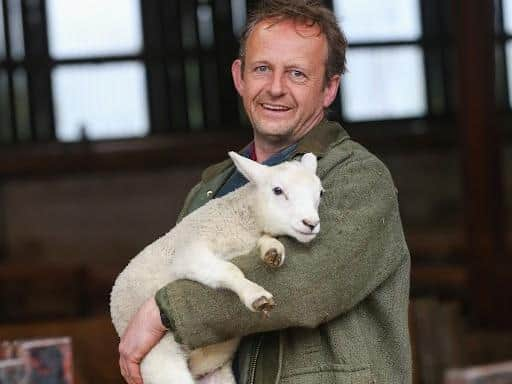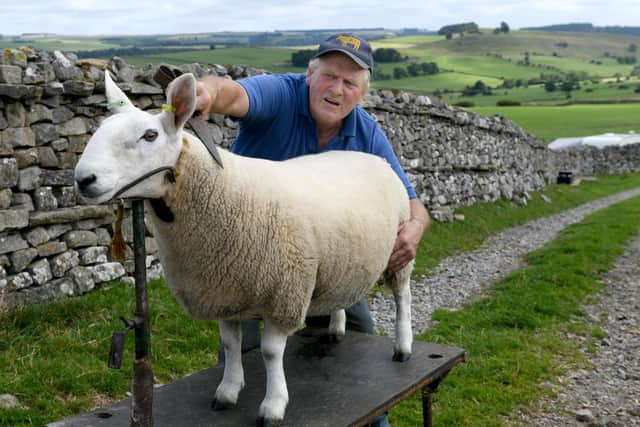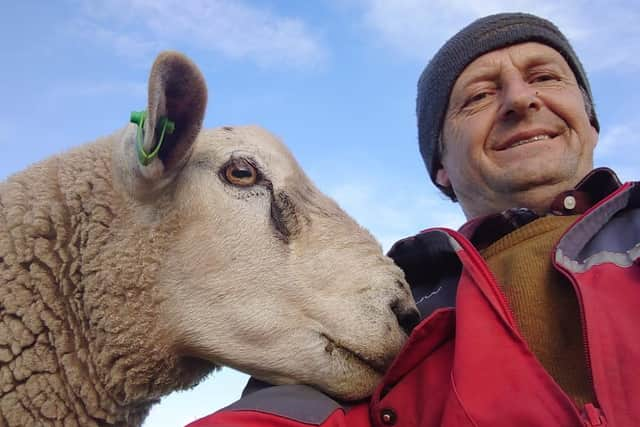Minister accused by Yorkshire farmer of being 'naive' over when the best time is to eat UK lamb
The Government said the deal, which follows 16 months of negotiations, would cut red tape for businesses and tariffs on a huge range of UK goods, from clothing and footwear to buses, ships, bulldozers and excavators. Meanwhile New Zealand products like sauvignon blanc wine and manuka honey will be cheaper to buy.
International Trade Secretary Anne-Marie Trevelyan said sheep farmers should not be worried by the deal and said it was a "possibility" they could start sending lamb to New Zealand.
Advertisement
Hide AdAdvertisement
Hide Ad"In terms of New Zealand lamb, I'm not at all concerned that my Northumberland farmers will be at risk. Different seasons, in a practical sense, because it's the other side of the world," the Berwick-upon-Tweed MP said.


"When I'm eating my Northumberland lamb at Easter I wouldn't be eating New Zealand lamb but I might now be able to have some lovely New Zealand lamb for my Sunday lunch in autumn, which otherwise I wouldn't have had."
But Scarborough sheep farmer Will Terry, the NFU's regional livestock board chairman, said: "We are producing all year round. I find it very worrying that a Government officer is so naive.
"There's grass fed lamb in the UK, and the prime time is this time of year in the Autumn after they have matured."
Advertisement
Hide AdAdvertisement
Hide AdMr Terry, who farms at Stoupe Brow Cottage Farm at Ravenscar, said he was dismayed by the Government's "double standards", adding: "It's all well and good putting restrictions on British agriculture and having aspirations of how we produce food for our nation and then potentially suck food in from wherever, with scant regard to production standards."


Fifth-generation sheep farmer Keith Stones, who has around 450 to 500 ewes at Nun Cote Nook Farm in Marrick, North Yorkshire, said they were resigned to getting a raw deal from successive Governments. He added: “Yes, it is a real threat, but we farmers have been able to weather the storm up till now.”
Mr Stones said the public needed educating about the high welfare standards of UK sheep farming and the fact it was almost organic, because “without the public we haven’t got a future”.
Pete Caley, a partner at Thixendale-based Six Valley Lamb, said the deals open the door to “very export focussed New Zealand and Australian markets, with lower costs of production”.
Advertisement
Hide AdAdvertisement
Hide AdHe’d been prepared for such a deal, but said it would be a real worry for some farmers as “it is not a level playing field”, adding: “There are opportunities for us to compete, but we are a long way from it at the moment. The Government needs to up their game in supporting research and development, productivity and investment and farmers need to get on the back of it and do something as well.”


Currently the UK is seeing reduced tonnages of lamb from New Zealand, some of whose farmers have switched to dairy to export to growing Asian markets.
The deal will see all quotas on lamb lifted after 15 years, but before that there will be a quota of 35,000 tonnes for the first four years, then 50,000 additional tonnes thereafter.
However the quota will only be accessible once the existing quota that the country has through the World Trade Organisation of 114,000 tonnes is filled to 90%, and officials insisted that as it stands New Zealand currently use only half of that, and that there are also safeguards in place to protect farming.
Comment Guidelines
National World encourages reader discussion on our stories. User feedback, insights and back-and-forth exchanges add a rich layer of context to reporting. Please review our Community Guidelines before commenting.